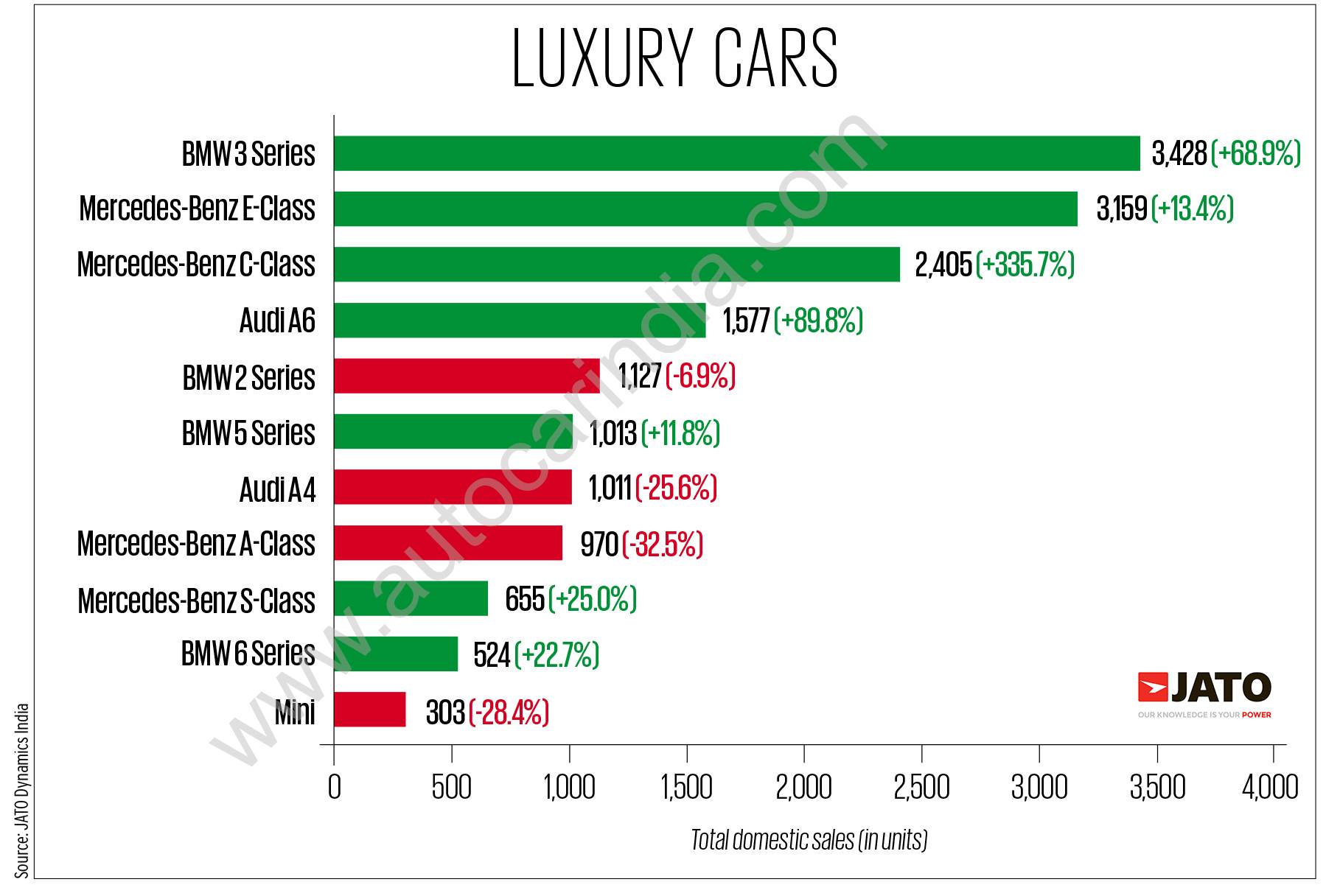Luxury Car Sales In China: The Struggles Of BMW, Porsche, And Competitors

Table of Contents
Intensifying Competition from Domestic Brands
The rise of domestic Chinese automakers is significantly impacting the luxury car market. These brands are no longer simply competing; they are aggressively challenging established players like BMW and Porsche for market share.
Rise of Chinese Luxury Automakers
Chinese luxury electric vehicle (EV) manufacturers, such as Nio, XPeng, and Li Auto, are experiencing rapid growth. Their success stems from several factors:
- Technological Advancements: These brands are incorporating cutting-edge technology, including advanced driver-assistance systems (ADAS), impressive battery technology, and sophisticated infotainment systems. Their EVs often boast superior range and charging capabilities compared to some international competitors.
- Competitive Pricing: Domestic brands often offer competitive pricing strategies, making luxury EVs more accessible to a broader range of Chinese consumers. This undercuts the pricing strategies of established luxury brands.
- Government Support: The Chinese government actively supports the growth of domestic automakers through various subsidies, tax incentives, and infrastructure development focused on EV adoption. This creates a significant advantage for local brands.
- Examples: Nio's battery swap technology, XPeng's advanced autonomous driving capabilities, and Li Auto's extended-range electric vehicle technology are all examples of successful innovation.
The Impact on Established Players
The rise of domestic brands is forcing established players like BMW and Porsche to adapt. They are facing:
- Price Wars: Increased competition is leading to price wars, squeezing profit margins and challenging established pricing strategies.
- Loss of Market Dominance: International brands are witnessing a decline in their market share as Chinese consumers increasingly opt for domestic alternatives.
- Need for Adaptation and Innovation: To remain competitive, established brands need to significantly enhance their technological offerings, adapt their marketing strategies to resonate with Chinese consumers, and potentially localize production to reduce costs.
Shifting Consumer Preferences in the Chinese Luxury Market
Understanding the evolving preferences of Chinese luxury car buyers is crucial for success. The market is increasingly driven by technology and a strong emphasis on brand perception and marketing strategies.
The Importance of Technology and Innovation
Chinese luxury car buyers, particularly younger generations, place a high value on technological advancements:
- Electric Vehicles (EVs): The demand for electric vehicles is soaring, driven by environmental concerns and government incentives. Hybrid and fully electric luxury vehicles are becoming increasingly popular.
- Autonomous Driving Features: Self-driving capabilities and advanced driver-assistance systems are highly desirable features for Chinese luxury car buyers.
- Connectivity and Digitalization: Seamless smartphone integration, over-the-air updates, and advanced infotainment systems are key selling points.
Brand Perception and Marketing Strategies
Effective marketing is essential to maintaining brand prestige and attracting Chinese consumers:
- Cultural Nuances: Understanding Chinese cultural values and preferences is vital for crafting effective marketing campaigns. Successful strategies often incorporate elements of traditional Chinese culture and values.
- Digital Marketing Effectiveness: Digital marketing plays a crucial role in reaching the tech-savvy Chinese consumer. Effective use of social media, online advertising, and influencer marketing is critical.
- Celebrity Endorsements: Strategic partnerships with popular Chinese celebrities can significantly enhance brand recognition and appeal.
Economic Headwinds and Macroeconomic Factors
Economic factors significantly influence luxury car sales in China. Recent economic slowdowns and government policies create both challenges and opportunities.
Economic Slowdown and its Impact
China's recent economic slowdown has had a noticeable impact on luxury car sales:
- Reduced Consumer Spending: Uncertainty in the economy has led to decreased consumer spending, affecting sales of luxury goods, including high-end automobiles.
- Impact on Disposable Income: Economic slowdown reduces disposable income for many Chinese consumers, limiting their purchasing power for luxury items.
- Market Uncertainty: Economic uncertainty discourages large purchases like luxury cars, leading to a cautious approach among potential buyers.
Government Regulations and Policies
Government policies play a crucial role in shaping the automotive landscape:
- Emission Standards: Stricter emission regulations are driving the adoption of electric and hybrid vehicles, favoring brands that offer such technologies.
- Import Tariffs: Import tariffs can significantly impact the pricing of imported luxury cars, affecting their competitiveness in the market.
- Incentives for Electric Vehicles: Government incentives for electric vehicle purchases boost the demand for EVs, benefitting both domestic and international brands offering electric models.
Conclusion
The Chinese luxury car market presents significant challenges for international brands like BMW and Porsche. Intensifying competition from technologically advanced and price-competitive domestic brands, evolving consumer preferences driven by technology, and macroeconomic headwinds all contribute to a complex and dynamic environment. Understanding the dynamics of luxury car sales in China is crucial for international brands aiming to maintain a foothold in this vital market. Further research into consumer behavior, technological advancements, and government regulations is essential for navigating the complexities and achieving sustainable success in this dynamic landscape. Stay informed on the latest developments in China's luxury automotive sector to adapt and thrive.

Featured Posts
-
 Max Officially Ends The Sex Lives Of College Girls After Season 3
May 27, 2025
Max Officially Ends The Sex Lives Of College Girls After Season 3
May 27, 2025 -
 Building Trumps Space Force Command A Look At Missile Production And Satellite Acquisition Challenges
May 27, 2025
Building Trumps Space Force Command A Look At Missile Production And Satellite Acquisition Challenges
May 27, 2025 -
 Everton Newcastle West Ham Battle For Emegha
May 27, 2025
Everton Newcastle West Ham Battle For Emegha
May 27, 2025 -
 Ashton Kutcher And Mila Kunis Addressing Marriage Speculation With A Romanian Getaway
May 27, 2025
Ashton Kutcher And Mila Kunis Addressing Marriage Speculation With A Romanian Getaway
May 27, 2025 -
 Chock And Bates Lead Us At World Figure Skating Championships
May 27, 2025
Chock And Bates Lead Us At World Figure Skating Championships
May 27, 2025
Latest Posts
-
 Elon Musks Actions Bill Gates Claims And The Debate Over Global Poverty
May 30, 2025
Elon Musks Actions Bill Gates Claims And The Debate Over Global Poverty
May 30, 2025 -
 Bill Gates Accuses Elon Musk Of Contributing To Child Mortality Musks Response
May 30, 2025
Bill Gates Accuses Elon Musk Of Contributing To Child Mortality Musks Response
May 30, 2025 -
 Elon Musk And Bill Gates A Heated Exchange Over Child Poverty
May 30, 2025
Elon Musk And Bill Gates A Heated Exchange Over Child Poverty
May 30, 2025 -
 The Story Behind Vivian Jenna Wilsons Modeling Debut And Relationship With Elon Musk
May 30, 2025
The Story Behind Vivian Jenna Wilsons Modeling Debut And Relationship With Elon Musk
May 30, 2025 -
 The Amber Heard Elon Musk Twins Unraveling The Mystery
May 30, 2025
The Amber Heard Elon Musk Twins Unraveling The Mystery
May 30, 2025
